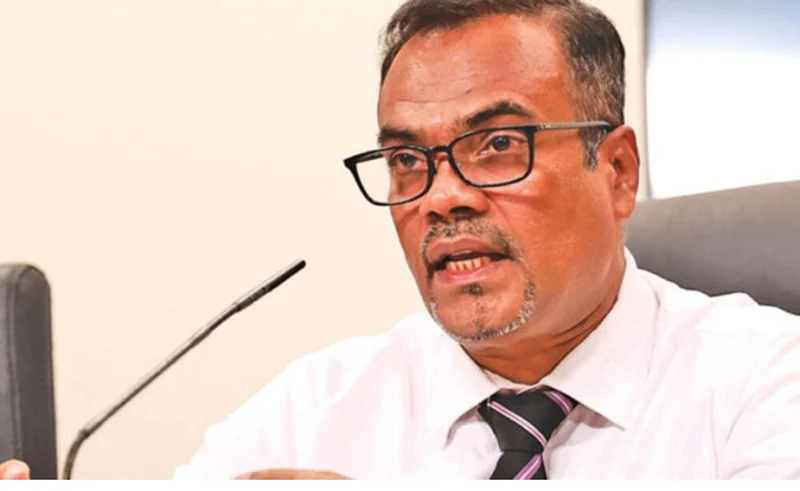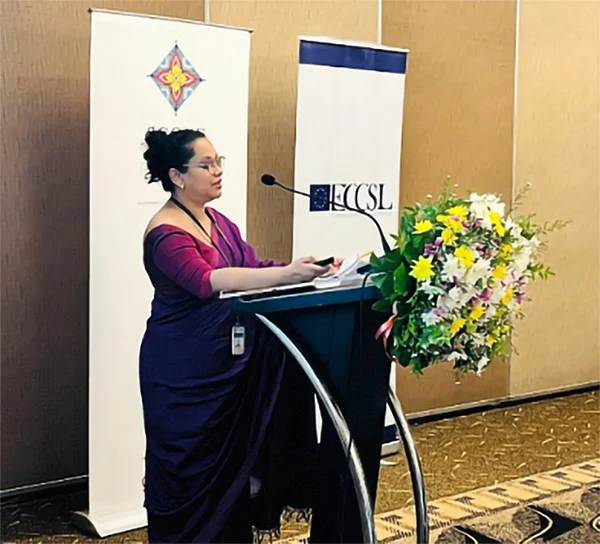Business
It’s high time Sri Lanka brought SOE privatisation to the policy table: Advocata

Sri Lanka is already in one of the worst economic crises in its history. Experts warn that deep economic reforms are essential.
Reforming SOE’s can curb further losses, which add to the fiscal deficit.
The Cumulative losses of the 55 SOEs from 2006-2020 was a staggering 1.2 trillion.
Disposing of State Owned Enterprises which are a burden on the public finances, is the crucial need of the hour.
Immediate privatisation of large State Owned Enterprises, will build international investor confidence.
“Some big government enterprises are not responsive to our needs. And because they’re not responsive, you will go home today and you will have a blackout of one hour, because they are load shedding during peak hours ,” says Prof. Rohan Samarajiva, a veteran policy expert and an advisor of the Advocata Institute.
He made these comments at Advocata’s recent press briefing, organised to highlight the urgency of carrying out reforms to State Owned Enterprises (SOE).
“The basic issue is that we, in this country, are suffering from a twin deficit. We need to get started on addressing the core problem”, further stressed professor Rohan Samarajiva.
According to Prof. Samarajiva privatising a globally visible, yet loss making SOEs such as SriLankan Airlines is the best solution to create confidence among investors that Sri Lanka is serious about reforms.
Sri Lanka’s SOEs are a serious burden on public finances. With the economic crisis reaching a tipping point, it is becoming increasingly impossible to keep these loss making enterprises afloat. The continuation to do so, at the expense of the taxpayer can have serious consequences to the economic trajectory of the nation.
Advocata Institute’s research team has identified that the cumulative losses of the 55 SOEs from 2006-2020 is a staggering 1.2 trillion. The combined loss per day of the Ceylon Petroleum Corporation, The Ceylon Electricity Board , Sri Lanka Airlines, Sathosa and the National Water Supply and Drainage Board is about LKR 384,479,189, according to data for the year 2019. This is at the backdrop, where the country is wading through a serious debt crisis with questions surrounding our ability to meet forthcoming debt obligations.
The briefing brought together a panel of industry experts who raised alarm bells on why Sri Lanka cannot afford to be complacent about State Owned Enterprise reforms anymore.
Prof. Rohan Samarajiva, further explained the seriousness of this issue along with how privatisation can achieve positive outcomes for the country.
“In 1997, Sri Lanka Telecom was making losses and providing bad services. Today, after privatisation, it is providing us with good services and employment and double of what they were earning. It is also providing the government with a dividend which generated billions to the government”. He highlighted that the country has no other alternative to prevent the hemorrhaging losses of State Owned Enterprises apart from privatisation.
“Privatisation is not a one size fits all model, it is different in different countries and sectors – as seen in the telecommunication industry in Sri Lanka – with a good regulator, we can have competition, leading to greater efficiency and making technology accessible to the common public” commented Ms. Anarkali Moonesinghe, Advisor to the Advocata Institute.
She further elaborated that possible avenues for privatisation that can be considered include listing of State Owned Enterprises in the stock exchange. According to Ms. Moonesinghe, “our stock market could use large capital companies that are owned by the government today. It not only gives people ownership but also broadens ownership by giving the average person an opportunity to become a direct stakeholder to these enterprises. This can be a better option than attaching the person through taxpayer money or having your EPF/ETF being taken into these enterprises”, thereby describing the merits of listing.
Dr. Sarath Rajaptirana, Advocata’s Academic Chair, said that the present crisis makes two choices available to us, which is “reform or perish ”. He highlighted the urgency of implementing structural reforms. He further commented that the key issue with State Owned Enterprises lies in productivity.
” For over 30 years, Sri Lanka’s total factor productivity was less than 1%,.This is in severe contrast to countries such as South Korea and Vietnam, where a jump in productivity is experienced today which we were never able to maintain . If you want permanent change in the GDP rate, you need to have productivity increase” said Dr. Rajaptirana.
Business
President AKD writes to President Trump over trade deficit concerns

In a bid to address mounting trade tensions, the Sri Lankan government has intensified efforts to reduce its significant trade deficit with the United States, Deputy Minister of Economic Development Dr. Anil Jayantha Fernando announced in parliament yesterday. He added that President Anura Kumara Dissanayake has despatched a formal letter to President Trump urging, among other things, a re-assessment of the recent enhanced tariff regime imposed on Sri Lanka.
The move follows reciprocal tariffs imposed by U.S. President Donald Trump, which Sri Lankan authorities say significantly affect key export sectors. The Deputy Minister indicated that the White House has acknowledged receipt of the Lankan President’s letter, signaling the launching of a potential bilateral dialogue.
Responding to a question raised by New Democratic Front (NDF) MP Ravi Karunanayake, Deputy Minister Fernando revealed that 88% of Sri Lanka’s trade deficit over the past five years stemmed from U.S. trade relations with apparel, rubber products, spices, other agricultural products and precious gems constituting 85% of total exports to the U.S. These exports, he noted, already face tariffs and paratariffs, but President Trump’s recent levies were calculated based on bilateral trade imbalances – a factor that has placed Sri Lanka’s economy under heightened pressure.
“The President’s intervention underscores our commitment to protecting Sri Lankan industries and fostering equitable trade terms, Fernando stated, defending the administration’s proactive and reactive measures to mitigate the US tariffs’ impact on local businesses.
Highlighting ongoing engagement, he added that another round of high-level discussions with the Office of the U.S. Trade Representative (USTR) was scheduled overnight. These talks aim to address structural trade imbalances and explore avenues for tariff relief, particularly for Sri Lanka’s apparel sector, which employs millions nationwide.
The President’s letter marks a strategic move in Sri Lanka’s diplomatic outreach, reflecting the government’s urgency to stabilise an economy still recovering from recent crises while in the middle of an IMF programme.
Sri Lankan industry leaders have cautiously welcomed the government’s efforts but emphasise the need for swift, tangible outcomes.
At present, all eyes remain on Washington’s response to President Dissanayake’s appeal – a potential turning point for Sri Lanka’s trade future, observers noted.
By Sanath Nanayakkare
Business
Inclusive and sustainable apparel for SDGs

The European Chamber of Commerce of Sri Lanka (ECCSL), in collaboration with the Strengthening Social Cohesion and Peace in Sri Lanka (SCOPE) programme, recently hosted its third industry-focused event, bringing together apparel-sector stakeholders to exchange experiences and practical insights on embedding inclusivity and sustainability into business operations.
Building on the success of ECCSL’s earlier events focused on tourism and food and agriculture, this apparel-focused gathering convened government representatives, industry leaders, business practitioners and the academia to discuss practical strategies for embedding inclusivity and sustainability into business operations.
While many businesses already recognize the importance of these principles, the event emphasized practical implementation, shifting the conversation from the “why” to the “how” of inclusive and sustainable practices.
Chamindry Saparamadu, Director General of the Sustainable Development Council of Sri Lanka, discussed how the Government of Sri Lanka is supporting businesses to create social and environmental impact through its Inclusive and Sustainable Business (ISB) Strategy. Ms. Saparamadu outlined how this strategy aims to create a resilient, equitable, and sustainable economy by building an ecosystem in which inclusive and sustainable businesses can thrive, driving transformative change across industries.
The event also featured engaging presentations from leading apparel businesses—Omega Line, Hirdaramani, and Compreli Consulting—each showcasing real-world examples of how inclusivity and sustainability can be embedded into business operations.
Omega Line, represented by Saman Jayasinghe (Chief HR Officer, Group – Administration) and Charman Dep (Assistant General Manager – Production Planning), presented its multifaceted sustainability approach, spotlighting its Vavuniya factory as a successful model for combining environmental stewardship with social impact.
Hirdaramani’s Manindri Bandaranayake (Chief Brand & Sustainability Officer for Sri Lanka, Bangladesh, Ethiopia, and Vietnam) showcased the company’s holistic sustainability framework, including its Wonders of Wellbeing (WOW) program, policies supporting differently-abled individuals, and deep community engagement.
Finally, Compreli Consulting co-founders Ramesh De Silva and Shehan Olegasageram showcased their innovative garment repair-as-a-service model—a circular, scalable solution that reduces waste and carbon emissions, while aligning with evolving global sustainability regulations.
Participants then had the opportunity to share their own knowledge in a group discussion, exchanging experiences and reflecting on the challenges and opportunities encountered in their sustainability journeys.
The event underscored the collective benefit of building Sri Lanka’s reputation as a global leader in inclusive and sustainable business. By fostering collaboration between businesses, the academic community and government stakeholders, the session aimed to accelerate broader industry adoption of these principles and contribute to Sri Lanka’s sustainable economic growth.
The discussions were facilitated by the Project Lead of ECCSL’s Inclusive Business Practices project, William Baxter.
Business
Union Assurance records Rs. 5.2 Billion PBT, fortifying its financial position by delivering best-in-class value

Union Assurance PLC, Sri Lanka’s longest-standing private Life Insurer, has recorded a strong financial performance with growth across key metrics for the year ending December 31, 2024. The Company achieved a 15% growth in gross written premium, totalling Rs. 21.6 billion driven by double-digit growth in both regular new business premiums and renewal premiums and paid Rs. 7.7 billion worth of claims and benefits to its customers during the year. In addition, for the year ending December 2024, the Company also declared an industry-leading universal life policyholder dividend rate of 12%, underscoring its continued commitment to deliver exceptional value to its customers.
Net investment income recorded a 9% year-on-year growth to reach Rs. 11.8 billion aided by an effective asset allocation strategy. The gains from the trading investment portfolio increased by 123% to reach Rs. 2.9 billion driven by the strong performance of the Colombo Stock Exchange during the latter part of the year.
Union Assurance distributed Rs. 3 billion as surplus from the policyholder fund and reported a profit after tax of Rs. 3.7 billion for 2024. The Company declared a final shareholder dividend of Rs. 5.00 per share amounting to a total payout of Rs. 2.9 billion.
A key milestone for Union Assurance in 2024 was the surpassing of Rs. 100 billion in total assets for the first time in its history, ending the year with Rs. 109.5 billion. This underscores the Company’s solid financial foundation and growth trajectory.
The Company’s assets under management grew by 15% during the year, reaching Rs. 95.6 billion driven by market valuation gains and cash generation from business operations. Furthermore, Union Assurance’s capital adequacy ratio stood at a healthy 264% at the end of 2024, well above the regulatory minimum of 120%.
-

 Business3 days ago
Business3 days agoColombo Coffee wins coveted management awards
-

 Business5 days ago
Business5 days agoDaraz Sri Lanka ushers in the New Year with 4.4 Avurudu Wasi Pro Max – Sri Lanka’s biggest online Avurudu sale
-

 Features4 days ago
Features4 days agoStarlink in the Global South
-

 Business6 days ago
Business6 days agoStrengthening SDG integration into provincial planning and development process
-

 Business5 days ago
Business5 days agoNew SL Sovereign Bonds win foreign investor confidence
-

 Sports7 days ago
Sports7 days agoTo play or not to play is Richmond’s decision
-

 Features4 days ago
Features4 days agoModi’s Sri Lanka Sojourn
-

 Midweek Review13 hours ago
Midweek Review13 hours agoInequality is killing the Middle Class











